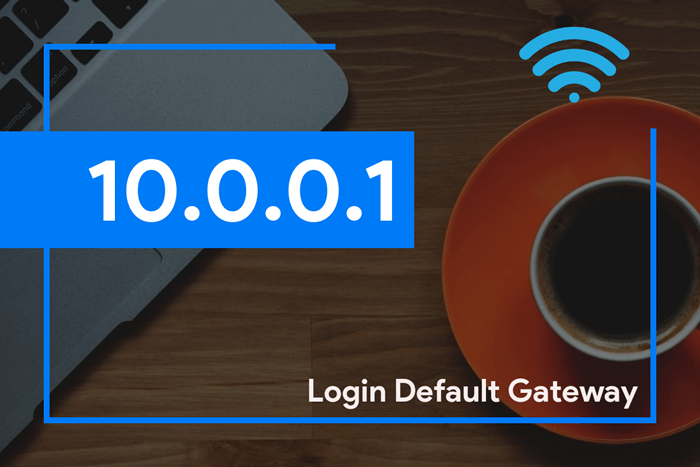Technology is changing at an ever-increasing pace, and so too is the way businesses operate. From start-ups to established companies, there are a number of tools that business owners need to keep up with the curve. In this blog post, we’ve put together a list of eight such tools, ranging from enterprise resource planning (ERP) software to chatbots. Read on to see what these tools can do for your business in 2023.
Social Media
Since the dawn of social media, businesses have been using it to connect with potential and current customers. However, many small businesses don’t have the time or resources to invest in a robust social media presence. That’s where tools like Hootsuite come in handy.
Hootsuite is a suite of tools that allow you to manage your social media accounts from one location. You can schedule posts, monitor responses, and track audience growth across all your platforms. It also has features like live streaming and chat that make it perfect for companies that want to keep their audiences engaged.
If you only have limited time for social media management, Hootsuite is a great option. But if you want to take your social media marketing to the next level, we recommend investing in tools like BuzzSumo and SocialBee. These tools give you access to vast amounts of data about what works and what doesn’t on social media, so you can create content that resonates with your audience.
2. How to Use Social Media for Business Research – Forbes
When it comes to using social media for business research, there are a few different approaches you can take. The first approach is to simply use Twitter or Facebook as your main sources of information. This is simple because these platforms provide quick access to recent tweets and posts from friends and followers alike.
However, this approach has some limitations because it’s difficult to track down older posts
Email Marketing
Email marketing is one of the most effective ways to reach out to your customers and keep them updated on what’s happening with your business. Here are five tools you need for email marketing:
1. A MailChimp account: This is the first tool you need for email marketing, and it’s one of the most popular platforms out there. MailChimp allows you to create beautiful newsletters, send automated emails, and track your results.
2. A good email template:Creating an effective email template is essential for ensuring that your emails look professional and make a impression. There are a lot of great templates available online, or you can get creative and design your own.
3. A good autoresponder sequence:Once you have a template created, it’s important to create an autoresponder sequence that goes with it. This will help send reminders about future events or calls to action throughout the year.
4. Email signatures: While not strictly necessary, adding some helpful graphics to your email signatures can really make an impact. Including your website address, contact info, and even social media handles can help encourage people to open your emails!
5. Email tracking software:Finally, you need some way to track how many people have opened and clicked through your emails – this is where email tracking software comes in handy! Not only will this help you measure success rates for your campaigns but also identify any areas that could use
Website Updating
1. Website Updates – Keeping your site up-to-date is important for both your online presence and search engine optimization (SEO). Here are five simple steps to updating your website:
2. Update Your Logo and Graphics – A fresh, updated logo will help set your business apart from the competition. Make sure you use high-quality graphics to represent your brand, and update them regularly to keep them looking sharp.
3. Update Your Site Content – If you haven’t updated your site content in a while, it’s time to do so. Replace old images with new ones, update the copy on your pages, and write new articles or blog posts that reflect the latest trends in your industry.
4. Update Your Web Hosting Provider – If you’re using a web hosting provider, be sure they’re keeping your site up-to-date as well. Many providers offer automatic site updates which can save you time and hassle.
5. Manage Your Website Security – One of the most important things you can do to protect yourself online is keep your website security up-to-date. Make sure you have strong passwords for all of your accounts, add lock codes to secure vulnerable areas of your website, and install anti-virus software on all of your devices connected to the internet.
Mobile Marketing
Businesses today are faced with a new frontier: mobile marketing. And while there are many different tools available to help you succeed, not all of them are guaranteed to work well for your business. Here are five essential mobile marketing tools that every business should have in their toolkit.
1. A Good Mobile Marketing Strategy
Before you start using any of the other tools, you need to develop a solid mobile marketing strategy. This will determine which specific tools will be best suited for your business and how you’ll use them. Once you have a strategy in place, consult with an expert to further tailor it to your needs.
2. A Good Mobile Marketing Agency
A good mobile marketing agency can help you design and implement a cohesive mobile marketing campaign that’ll reach your target audience. They can also provide ongoing support and advice as your business grows and changes.
3. An Excellent Mobile App Development Company
Building an excellent mobile app isn’t easy – but it’s definitely worth it if your business wants to take advantage of the booming mobile market! If you don’t have the technical skills needed to build your own app, consider hiring an app development company to do it for you.
4. A Good Mobile Search Engine Optimization Company
Mobile search engines like Google Play Store and Apple App Store offer high visibility for businesses that optimize their websites and apps properly. Hiring a good SEO company will ensure that your website and apps appear on the first page of results when people
Business Planning
-When starting a business, the first step is always planning. There are many different tools and resources available to help with this process, so it’s important to find what works best for you.
-One popular tool is a business plan template. This document can help you outline your business goals, strategies, and how you plan on achieving them.
-Another option is to use software specifically designed for business planning. This type of software can help you track your finances, create marketing plans, and more.
-Whatever approach you choose, be sure to keep a record of your work so you can revisit it later on. This will help ensure that your business is moving in the right direction.
Employee Training
Employee training is important for businesses of all sizes. Training can help your employees understand company policies and procedures, as well as their job duties. It can also help ensure that your employees are up to date on the latest technology and business practices.
There are a number of tools you can use to provide employee training. You can use classroom-style training programs or online learning resources. You can also use software tools to create and manage training materials. Whatever approach you choose, make sure that your employees have access to the necessary training materials and resources.
Budgeting and Management
When starting a business, one of the most important tasks is budgeting and managing your money. This means understanding what you can afford to spend, and setting priorities based on what’s important to you and your company.
There are a lot of tools available to help you with this, from software like QuickBooks or Excel to online providers like Mint or Google Sheets. It can be tough to figure out which ones are right for you, so here are some tips on how to get started:
1. Set basic goals: Before you start budgeting, it’s important to know what your goals are for your business. What do you want it to achieve? How many new customers do you want? How much revenue do you want each month? Once you know these basics, it’ll be easier to figure out where money should go.
2. Decide how much information is necessary: One of the main challenges with budgeting is that different people have different needs and wants when it comes to information. How much detail do you need in order to track your finances? If you’re just starting out, a minimal amount of data will probably suffice. As your business grows, however, more detailed tracking may become necessary. It all depends on what works best for your specific situation.
3. Calculate spending limits: Just because you’ve determined your goals and tracked expenses in the past doesn’t mean that’s all that matters now – spending limits must still be set!
Conclusion
In this article, we’re going to discuss some of the tools that you will need in order to start or grow your business in 2023. We think it is important for you to have a solid understanding of the changes taking place in the world of business, so that you can capitalize on these changes and grow your venture into a success. In this article, we will discuss some of the most important tools that you need in order to be successful in business today and into the future.



